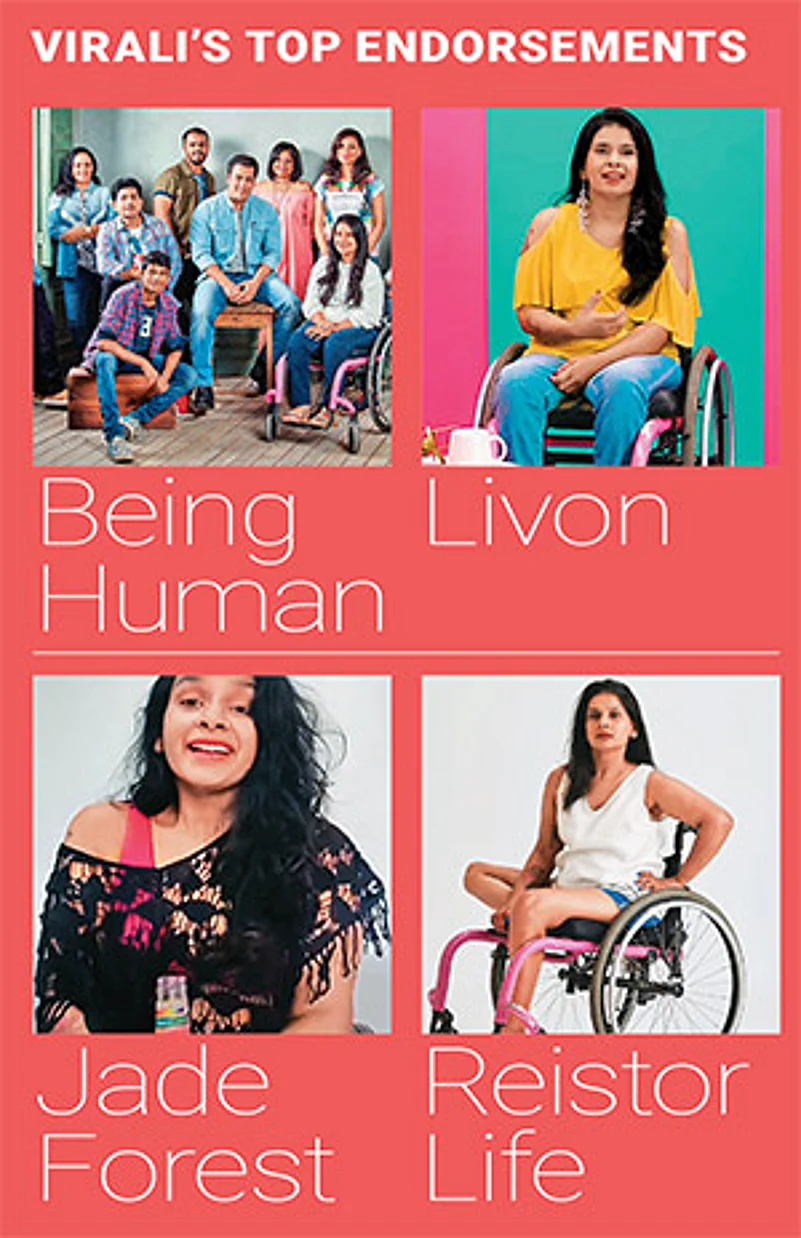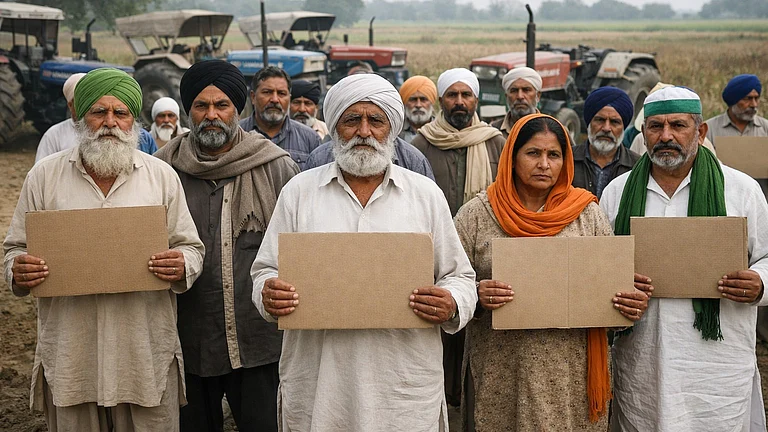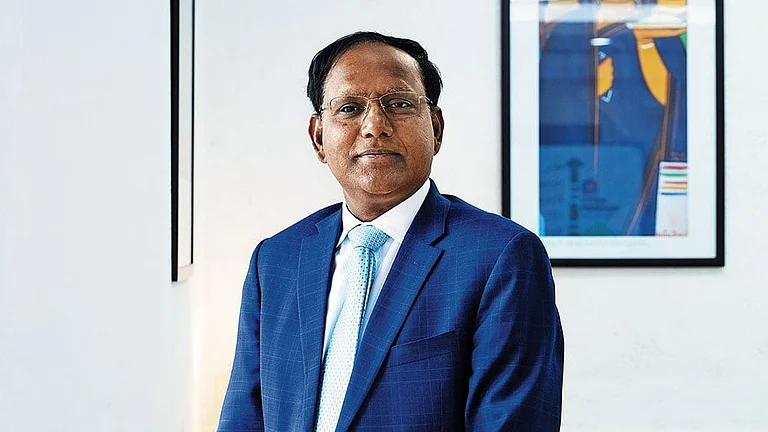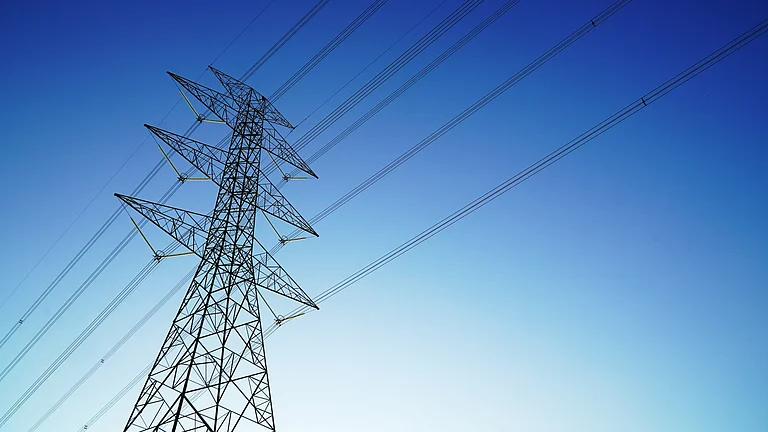Watching Shah Rukh Khan serenade Kajol in Kuch Kuch Hota Hai, a seven-year-old Virali Modi in the US had decided that her future career would be in front of the camera.
But fate had other plans for her. On a visit to India, Modi, then 14, fell ill. Her condition persisted even after she returned to the US. There came a point when she could barely walk.
Her parents then rushed her to a hospital where, following a lumbar puncture, Modi had a seizure and was clinically dead for seven minutes. She was put on ventilator support and during the 20 days of her hospitalisation, doctors had declared her dead two more times, willing to pull the plug on her.
Her mother insisted they celebrate her next birthday on September 29, 2006, before taking her off life support. Her family festooned the hospital room with balloons and her father held her hand to cut the cake when Modi opened her eyes and mumbled. “This might sound like something out of a soppy movie, but I survived and even doctors called it a miracle,” she recalls. However, she was left paralysed from the neck down.
Having grown up in a cheerful household, Modi was an optimistic teenager and consoled herself by thinking that she would soon regain her strength. But when her friends called her a vegetable and refused to hang out with her, it dented her morale. The young girl gradually slipped into depression and even attempted suicide twice. She cried and yelled upon returning from the hospital, being rescued the second time. After trying to comfort her for a few minutes, her mother stopped and asked her a simple question: how will you be able to change what happened to you by feeling upset?
Her mother then introduced her to The Secret by Rhonda Byrne and the power of manifestation. “This changed my life. At bedtime every night, I visualised that I could use my hands and, a month later, I could finally scribble my name,” Modi reminisces. She credits the power of positive visualisation for giving her the strength to regain movement up to her waist.
Railing against Reality
In 2008, she moved to India with her mother for further medical treatment. This is when she saw the abysmal reality of India’s disability access.On a journey to Delhi from Mumbai’s Bombay Central railway station, she was shocked to see zero accessibility services for the disabled. There were no ramps or handrails. One of the two porters enlisted to lift her into the compartment groped her, leaving her feeling ashamed of herself and her dependency on others for basic movement.

Over the years, Modi says she has been molested several times, including being groped by healthcare professionals during check-ups. When asked why she did not take a legal recourse, she questions who would have believed her. “Disabled people were either placed on a pedestal or knocked to the ground. The Rights of Persons with Disabilities (RPwD) Act in 2016 made a difference later,” says Modi.
In 2017, the Indian Railways announced the inaugural run of Tejas Express, claiming that it was disabled friendly. Modi points out that most services were more attuned to the deaf and blind with token options like braille lettering on the signboards.
“I was agitated because the administration could not pick and choose a convenient disability. It is a broad term covering a huge spectrum of physical limitations, including locomotor disability, which the railways could have considered if it wanted to give the disabled a right to travel with dignity,” she fumes.
Modi penned an open letter to the Prime Minister’s Office and the Ministry of Railways. She also posted it on her Quora, Facebook and Twitter handles. Within days, several media channels had picked it up and the issue had gone viral. Before she even realised, Modi had become a disability activist.

Aware of the power she could wield with her social media presence, Modi started the #MyTrainToo campaign on Change.org the same year, which has amassed over six lakh signatures to date. This caught the attention of the then Union minister for women and child development Maneka Gandhi and then Southern Railway chief commercial manager Ajeet Saxena, who considered various ideas, including collapsible wheelchairs and portable ramps. A pilot project was run at three train stations in Kerala, and it later rolled out in major Indian railway stations.
Modi’s perseverance won her the Women’s Achiever Award in 2017 by the Delhi Commission For Women. She also made it to the BBC’s list of the “100 Women for 2017”. Since then, she has appeared on several TedX shows and attended many global conferences where she tries to destigmatise disability.
Not a Quitter
Amid this, Modi has made sure to keep in touch with her childhood dream of being in showbiz. She is the runner-up of the 2014 Miss Wheelchair India pageant. Following her success there, she appeared in an ad for the Navi Mumbai Marathon in Maharashtra in 2015.
Charged up, she gave several auditions. However, one constant comment she would hear was that she was talented and beautiful, but there were no roles for a wheelchair-bound artiste.
Though disheartened, she decided to not give up and kept working on her diction and acting skills. The power of positive thinking seemingly worked and a campaign with actor Salman Khan for his Being Human clothing line in 2018 flagged off her modeling career. That year, she also won the Bharat Prerna Award from social organisation Ample Mission. She later appeared in various ramp shows, including the Bombay Times Fashion Week in 2019. Everything seemed to be going her way but not for too long.
In 2019, Modi’s mother, who had taken care of her all along, was diagnosed with cancer. That is when Modi decided to live alone in Mumbai, where she had built her career, so her mom could focus on her recovery in the US. “I moved to a larger apartment in Dombivali on the outskirts of Mumbai and started living alone for the first time in my life. The kitchen is not disabled friendly, but I learned to manoeuvre my way and even cook my meals—something I had never done,” she proudly says.
When her mother passed away in the same year, Modi slipped into depression again and the Covid-19-induced lockdowns in 2020 only exacerbated that.However, she maintains that her mother had not raised a quitter, and she wanted to honour her mom’s memory by prevailing once more.
Social Media Solace
With time on her hands, she decided to jumpstart her social media channels again, curiously on a platform that influencers generally do not target. “My journey as an influencer actually began when I started writing my life experiences on Quora. By 2016, I had 58,000 followers,” says Modi.
She started posting things from her daily life on Facebook, including her fitness regimen, cooking experiments and even rants about being cooped up indoors. She did not understand Instagram well, but when it launched Reels in July 2020, she saw people moving to the platform. “I realised that my journey would be such a Bollywood bestseller and inspiration if I could capitalise on it. So, during the pandemic, I started filming content while being stuck indoors … I underwent a digital marketing course on Udemy and learned how to edit videos. I started being more consistent about posting on Facebook, Instagram and YouTube, and, soon, I could monetise it,” she explains.
She began focusing more on Instagram Reels, since she felt it had a better reach. She could talk about her life in 60-to-90-second videos that are perfect in this era. Soon, her follower count went up on Instagram and sits at 12,300 today. Similarly, she has 1,180 subscribers on YouTube and 1,500 followers on Facebook
As her audience increased, brand collaboration and modeling offers started rolling in once again. Over the past few months, she has collaborated with brands like Tailor and Circus, Livon, Jade Forest, Super Me Naturals, Reistor, WeWork, Earth Rhythm and Kay Beauty By Katrina. Today, Modi has a manager who handles all the brand negotiations and her logistics for travel and accommodation. She also notes that brands are more than delighted to be associated with her today to showcase their inclusivity-first approach.
“It is funny how things usually work out in the end if you maintain a positive frame of mind. It is easy to get embittered and desolate but tougher to put your head down and push through. However, if you do the latter, it often pays off and leaves you feeling so gloriously happy,” she concludes.































